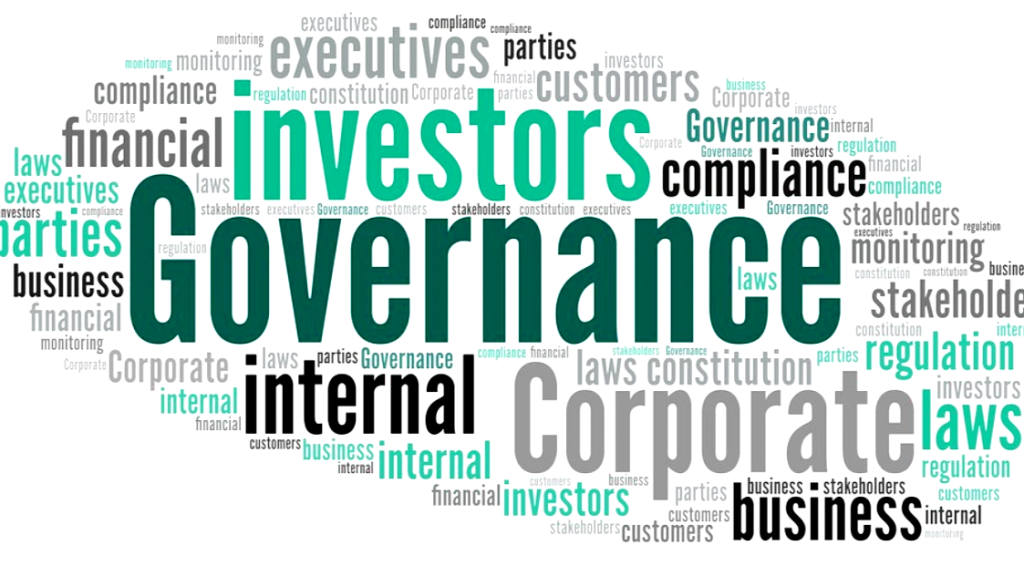
Having worked with a number of companies across various stages of growth, as well as engaging in mergers and acquisitions (M&A) transactions, I have noticed a consistent trend that is often overlooked by many founders and executives. When startups or businesses look to attract investors or engage in M&A transactions, there is often a heavy focus on financials, growth potential, and product innovation. However, what is often overlooked, but critical to investors and stakeholders, is the company’s corporate governance structure. Strong governance frameworks not only provide transparency and accountability but also serve as an indicator of how well a company can scale and sustain its growth. In today’s investment landscape, having a robust corporate governance framework can significantly enhance a company’s attractiveness to investors, ensuring long-term value creation and sustainable success.
From Startup to Scale-Up: The Role of Governance in Sustainable Growth
In the fast-paced world of startups and high-growth companies, it’s easy to focus exclusively on growth metrics and innovation. However, an essential, yet often underestimated factor that investors and acquirers closely evaluate is the company’s corporate governance structure. Corporate governance refers to the systems, processes, and principles by which a company is directed and controlled. For investors, a company’s governance structure provides insight into its long-term viability, risk management, and leadership integrity.
Here’s why it matters:
- Building Investor Confidence: Investors are not just interested in profit potential, they want assurances that the company they are backing is well-managed. A transparent governance framework creates clear decision-making processes, accountability, and compliance with legal standards, all of which help investors trust that their money is being managed wisely. In fact, according to a PwC study, 82% of investors consider strong corporate governance structures a key factor in their investment decisions, highlighting just how crucial governance is in securing funding 1. Key governance elements that build this trust often include an independent board of directors, regular audits, clear compliance protocols, and transparent reporting processes. These structures demonstrate that leadership is accountable, risks are being monitored, and the company is capable of scaling responsibly.
- Risk Mitigation and Accountability: Corporate governance helps define how a company is directed and controlled. It creates systems of checks and balances, safeguarding against internal mismanagement and external threats. This is particularly crucial for investors, as a lack of governance can lead to reputational damage, legal complications, or financial losses – all of which can severely devalue their investment.
- Long-Term Value Creation: Good governance is not just about avoiding risks but also about creating long-term value. Companies with a sound governance structure are better equipped to adapt to changes, engage meaningfully with stakeholders, and align their growth strategies with the expectations of investors. This is especially crucial in the context of M&A, where the stability and integrity of a company’s governance can influence its valuation and attractiveness as a potential acquisition target.
- Scaling with Integrity: For companies looking to scale, corporate governance becomes even more crucial. As businesses grow, so do their operational complexities, making a solid governance framework vital to maintaining ethical standards, regulatory compliance, and operational efficiency. Historical examples, such as the Enron scandal, illustrate the severe consequences of failing to uphold strong governance practices, ranging from legal troubles to financial ruin 2. Investors are more likely to commit to a company that demonstrates it can scale responsibly, preserving its values and avoiding risky behaviors. A robust governance framework ensures that as your business expands, it continues to operate with integrity and transparency, which is essential for sustaining long-term investor confidence and achieving growth targets.
Conclusion
Corporate governance is no longer just a “box to tick”, it is an essential pillar that drives investor confidence, risk management, and sustainable growth. Companies aiming to attract investment or pursue M&A opportunities must prioritize building robust governance structures. This not only enhances their attractiveness but also positions them for long-term success in an increasingly competitive market.
Founders and C-Suites should ask themselves – Is my company’s governance framework strong enough to attract and retain investor confidence? Now is the time to evaluate and strengthen governance structures to ensure your company is poised to scale responsibly and thrive. By focusing on governance, companies signal to investors that they are built on a foundation of trust, transparency, and accountability; qualities that are critical for sustained growth and long-term value creation.
References
- PwC, Economic Realities: The ESG Imperative (2021), https://www.pwc.com/gx/en/issues/reinventing-the-future/take-on-tomorrow/download/sbpwc-2021-10-28-Economic-realities-ESG.pdf.
- Dibra, Rezart. 2016. “Corporate Governance Failure: The Case Of Enron And Parmalat”. European Scientific Journal, ESJ 12 (16), 283. https://doi.org/10.19044/esj.2016.v12n16p283.


Leave a Reply